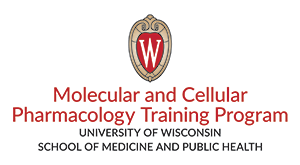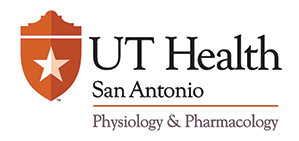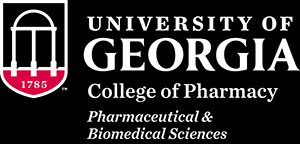Thank you to our 2020 Institutional Partners, who help support ASPET’s programs and initiatives. Please support our partners by learning more about their graduate training opportunities and programs and sharing them with your students.
Platinum Level Partner

The objective of the NIH T32-supported Molecular and Cellular Pharmacology (MCP) Training Program is to equip students with the skills required to conduct high impact biomolecular, biomedical,
and pharmacological basic research. The program assists students in becoming independent investigators in these research areas, facilitating their entry into careers in industry, academia, and beyond. Advances in biomedical sciences are often based
on the development of new drugs, which improve and save the lives of millions of patients. Drugs with specific biochemical actions are also powerful research tools. They provide pharmacologists and other biomedical scientists unique research opportunities,
which help to elucidate cellular signaling cascades. Students in the MCP program will develop expertise in the fundamentals of Molecular and Cellular Pharmacology and solve a variety of problems in the basic biomedical sciences involving the design
of research strategies for the discovery of novel drugs or gene therapy approaches.
Gold Level Partner

Physiology and Pharmacology is a discipline within the Integrated Biomedical Sciences Graduate Program at the Graduate School of Biomedical Sciences at UT Health San Antonio.
The Physiology and Pharmacology Discipline encompasses the study of fundamental mechanisms of normal and disease function. Investigators seek to integrate information from molecular, cellular and organ/system levels to spur discoveries, and improve treatments for disease. Using sophisticated genetic and molecular tools, as well as a wide range of behavioral approaches, our scientists are unraveling the fundamental mechanisms that underlie tissue and cellular physiology, and how these processes are compromised in injury and disease.
UT Health San Antonio is renowned for its seminal contributions in many areas including cardiovascular physiology, neuropharmacology, neurophysiology, and the physiological basis of aging. Internationally recognized research expertise is assembled in areas of neuropharmacology, addiction and pain research, diabetes and cardiovascular disease, neurodegenerative disease, and cancer pharmacology.
Silver Level Partner

The Department of Pharmacology at the University of Minnesota is one of six basic science departments in the Medical School. The well-funded research programs of our primary faculty members focus on understanding and developing better treatments for cancer, addiction and the opioid crisis, cardiovascular disease, infectious disease, and metabolic syndrome. We also offer an undergraduate Pharmacology Minor, oversee the Graduate Program in Pharmacology, teach fundamental principles of pharmacology to students in professional degree programs (MD, DDS, MD/PhD, and JD/PhD), and provide individualized training experiences for our strong community of postdoctoral scholars. Our past trainees are now applying their skills to impactful careers in academia, medicine, industry, government, law, and regulatory oversight. We are proud of our role in preparing the next generation of scientists for rewarding careers in the health sciences and related professions, and for the various other ways we give back to our community.
Bronze Level Partner

The Pharmaceutical Sciences Graduate Program provides coursework and research experience across a spectrum of basic and translational sciences that support drug discovery, delivery and development. Didactic course requirements are modest, flexible and tailored to fit individual needs and career goals.
The majority of a Ph.D. student’s time is spent pursuing a research project under the guidance of a faculty mentor. Our students actively participate in weekly research seminars, journal clubs and laboratory meetings.
The program prioritizes supporting students in presenting their research results at national and international meetings, publishing in peer-reviewed journals and seeking prestigious fellowships and awards.
Students are mentored by world-recognized scientists across a variety of research area including autoimmune disorders, cancer biology, drug delivery/nanotechnology, drug-diet interactions, drug discovery, molecular therapies, biomedical, drug discovery, molecular therapeutics, pharmacogenomics, toxicity, and translational pharmacology.
Supporter Level Partners

The Department of Pharmaceutical and Biomedical Sciences focuses on groundbreaking discoveries in multiple areas of pharmaceutical sciences. These include drug discovery, medicinal chemistry, chemical biology, structural biology, gene editing and delivery, protein kinases, synthetic biologics, pharmaceutics, pharmacology, cell signaling and death, cancer biology, drug delivery, and toxicology, among others. Although seemingly diverse, almost all research is focused on drug discovery and therapeutics for treating diseases. This diversity also allows for a truly interdisciplinary and integrated training experience. Graduates of our program have had successful careers in the pharmaceutical industry, healthcare, academia and government.

The MCP Program at SBU brings together gifted students, scientists, and physicians to explore fundamental mechanisms that regulate cell and organ function and therapeutic development to intervene when they are errant.
Our PhD Program composes training faculty from many Departments at Stony Brook, Brookhaven National Laboratories and Cold Spring Harbor Laboratories. It offers comprehensive training from basic biological sciences to the study of cell, tissues and organisms. Research interests include cancer and infectious disease, cardiovascular and endocrine pharmacology, neuropharmacology and drug design. The coursework provides training in pharmacology, genetics, cell biology, immunology, structural and computational biology, and neuropharmacology.
The MS Program provides a springboard for students pursuing careers in academic (PhD, MD, and Pharmacy), pharmaceutical, and government sectors.
The Pharmacological Sciences Department also houses the SBU Medical Scientist Training Program and the Scholars in BioMedical Sciences Advanced Graduate Certificate Program.